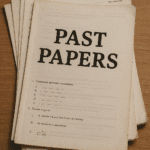Table of Contents
Your Path to Tanzanian Universities in 2025.
Introduction
Applying to university in Tanzania for the 2025 academic year requires careful planning and adherence to specific procedures. This guide outlines the essential steps, from choosing a university and program to submitting applications and securing necessary documentation. It covers key deadlines, application fees, and provides helpful advice for a successful application process.
Choosing the Right University and Program in Tanzania
Applying for university in Tanzania in 2025 requires careful consideration of various factors, and choosing the right university and program is paramount to a successful academic journey. This process begins with thorough research, understanding your academic strengths and career aspirations. Firstly, you need to identify your academic interests. What subjects genuinely excite you? What are you naturally good at? Reflecting on these questions will help narrow down potential fields of study. For instance, a strong aptitude for mathematics and science might lead you towards engineering, medicine, or computer science, while a passion for literature and history could point towards humanities programs.
Furthermore, aligning your academic interests with your career goals is crucial. Consider what kind of career you envision for yourself after graduation. Researching the job market and the skills required for your desired profession will help you choose a program that provides the necessary training and experience. This might involve looking at the curriculum of different programs, examining the types of projects undertaken by students, and even researching the career paths of alumni from various universities. This proactive approach ensures your university education directly contributes to your future professional success.
Once you have a clearer idea of your desired field of study, you can begin researching Tanzanian universities. Tanzania boasts a diverse range of higher education institutions, each with its own strengths and specializations. Some universities are renowned for their strong science programs, while others excel in the humanities or social sciences. Therefore, it’s essential to investigate the reputation and accreditation of each university. Look for universities with a strong track record of academic excellence, experienced faculty, and robust research opportunities. Online resources, university websites, and rankings can provide valuable information in this regard. Moreover, speaking to current students or alumni can offer invaluable firsthand insights into the university’s culture, teaching style, and overall student experience.
In addition to the university’s reputation, consider its location and facilities. Think about the proximity to your family and friends, the availability of accommodation, and the overall campus environment. A supportive and stimulating learning environment can significantly impact your academic performance and overall well-being. Access to resources such as libraries, laboratories, and computer facilities is also crucial, especially for programs requiring extensive research or practical work. Therefore, a comprehensive assessment of the university’s infrastructure and resources is vital.
Finally, remember to check the specific entry requirements for your chosen program. Each university and program will have its own set of academic prerequisites, including minimum grades in specific subjects and potentially entrance examinations. Carefully review these requirements and ensure you meet them before submitting your application. Missing even one requirement could lead to your application being rejected. Therefore, meticulous attention to detail is crucial throughout the application process. By carefully considering these factors and conducting thorough research, you can significantly increase your chances of selecting the right university and program in Tanzania for a successful and rewarding academic experience in 2025.
Navigating the Application Process: Step-by-Step Guide
Applying for university in Tanzania in 2025 requires careful planning and attention to detail. This process, while potentially daunting, becomes significantly more manageable when approached systematically. Firstly, you must identify the universities and programs that align with your academic goals and aspirations. Researching various institutions, their academic offerings, entry requirements, and overall reputation is crucial. Consider factors such as location, campus culture, and available resources when making your choices. Websites of individual universities are invaluable resources in this regard, providing detailed information on courses, admission criteria, and application deadlines.
Once you have compiled a list of potential universities, the next step involves gathering the necessary application documents. This typically includes official transcripts from your secondary school, a copy of your national identity card or passport, and potentially letters of recommendation from teachers or other relevant individuals who can attest to your academic abilities and character. Furthermore, many universities require applicants to submit a personal statement or essay outlining their academic aspirations, motivations, and relevant experiences. This is your opportunity to showcase your personality and demonstrate your suitability for the chosen program. Therefore, crafting a compelling and well-written personal statement is essential. Pay close attention to grammar, spelling, and clarity, ensuring your statement is free of errors.
Following the compilation of your documents, you will need to carefully review the application instructions provided by each university. Each institution may have its own specific application portal and procedures. Some may require online applications, while others may accept paper applications. Meticulously following these instructions is paramount to avoid delays or rejection of your application. Pay close attention to deadlines, as late submissions are often not accepted. Moreover, ensure all required documents are submitted in the correct format and within the stipulated timeframe. Procrastination should be avoided at all costs; starting the application process well in advance of the deadlines is highly recommended.
After submitting your application, you will likely need to participate in an entrance examination. The nature and format of this examination vary depending on the university and the program you have applied for. Some universities may conduct aptitude tests, while others may focus on subject-specific examinations. Preparing adequately for these examinations is crucial. Reviewing relevant course materials and practicing past papers can significantly improve your chances of success. Furthermore, maintaining a positive and confident attitude during the examination is essential for optimal performance.
Finally, after completing the application process and any entrance examinations, you will need to await the results. This period can be stressful, but patience is key. Once the results are released, successful applicants will receive notification of their acceptance and further instructions regarding enrollment. Those who are not successful should not be discouraged. Reviewing the application process and identifying areas for improvement can be beneficial for future applications. Remember, university admission is a competitive process, and perseverance is often rewarded. By following these steps diligently and maintaining a proactive approach, you can significantly increase your chances of securing a place at a Tanzanian university in 2025.
Understanding Tanzanian University Application Requirements

Applying for university in Tanzania in 2025 requires careful planning and a thorough understanding of the application process. Firstly, prospective students must meet the minimum academic requirements set by the respective universities and the Tanzania Commission for Universities (TCU). These requirements typically include possessing a Form Four certificate with a minimum number of points, often varying depending on the chosen program and university. Furthermore, specific subjects may be prerequisites for certain courses; for instance, a strong background in mathematics and science is usually necessary for engineering programs. It is crucial to carefully review the entry requirements outlined in the university’s prospectus or on their official website, as these details can significantly influence your eligibility.
In addition to academic qualifications, applicants should also be aware of the application deadlines. These deadlines vary between universities and even between different programs within the same university. Therefore, it is imperative to check the specific deadlines for your chosen institution and program well in advance. Missing a deadline can result in your application being rejected, regardless of your academic merit. Consequently, proactive planning and meticulous record-keeping are essential to avoid such setbacks. This includes keeping copies of all submitted documents and regularly checking for updates from the universities.
The application process itself usually involves completing an online application form. This form will require personal information, academic history, and details about your chosen program. Accuracy is paramount in this stage; any inaccuracies or omissions can lead to delays or rejection. Moreover, applicants will typically need to upload supporting documents, such as their Form Four certificate, transcripts, and passport-sized photographs. These documents must be in the required format and of acceptable quality; blurry or incomplete documents may be rejected. Therefore, it is advisable to prepare these documents well in advance and ensure they meet the specified criteria.
Beyond the online application, some universities may require applicants to attend an interview. This interview serves as an opportunity for the admissions committee to assess the applicant’s suitability for the program. Preparing for this interview is crucial; applicants should research the university and the program thoroughly, and be ready to discuss their academic achievements, career aspirations, and reasons for choosing that particular university and program. Practicing answering common interview questions can significantly boost confidence and improve performance. Furthermore, dressing professionally and exhibiting good communication skills are essential aspects of making a positive impression.
Finally, after submitting the application, applicants should expect a response from the university. This response may take several weeks or even months, depending on the volume of applications received. During this waiting period, it is advisable to remain patient and avoid contacting the university repeatedly. However, if there is no response after a reasonable period, it is acceptable to follow up politely to inquire about the status of the application. Ultimately, securing a place at a Tanzanian university requires diligence, careful planning, and a thorough understanding of the application requirements. By meticulously following these steps, prospective students can significantly increase their chances of success.
Conclusion
Applying to Tanzanian universities in 2025 requires careful planning and adherence to specific deadlines and procedures for each institution. Successful applicants will have thoroughly researched their chosen universities, met the academic requirements, submitted all necessary documentation correctly and on time, and potentially participated in entrance examinations. Prospective students should begin the application process well in advance of deadlines to avoid last-minute complications.






Tagged: News, TCU
Related posts:
Related posts: